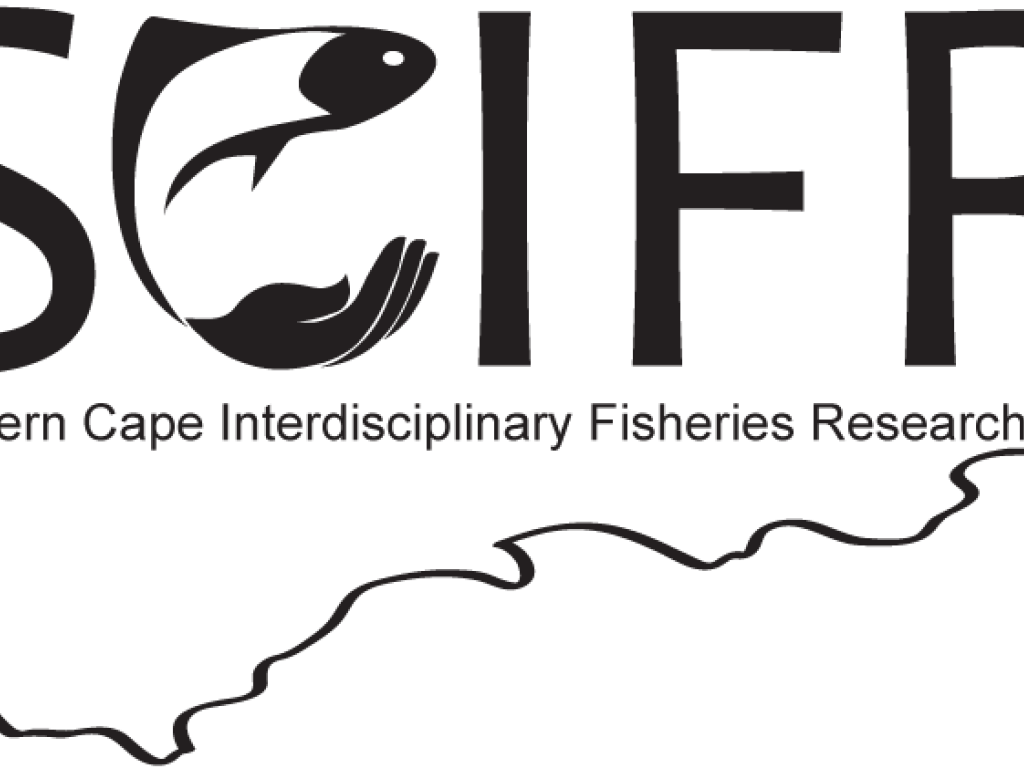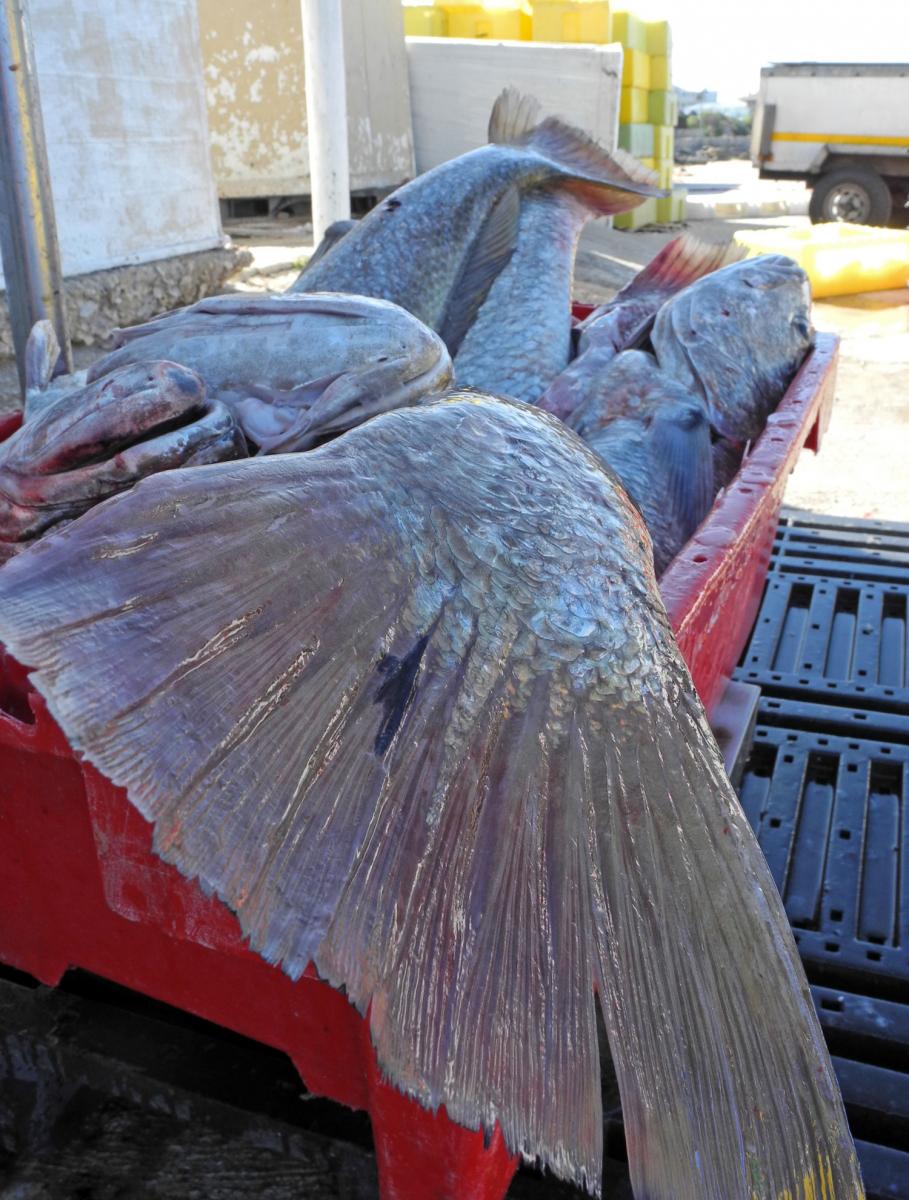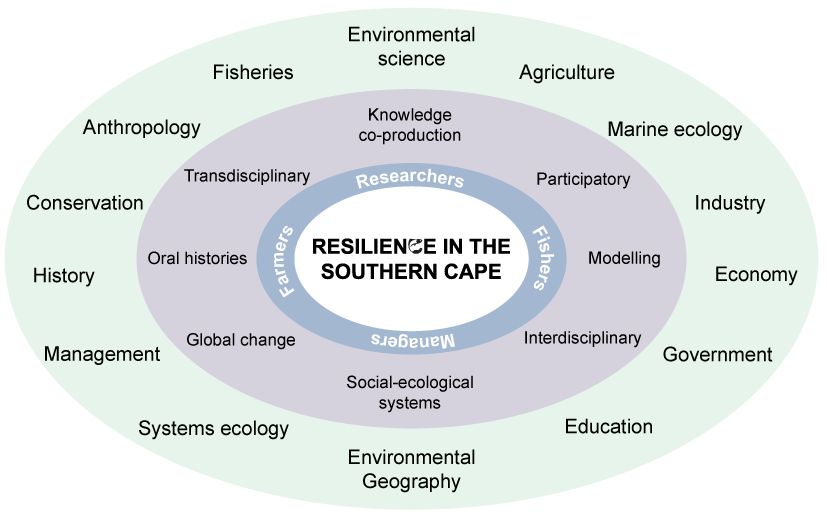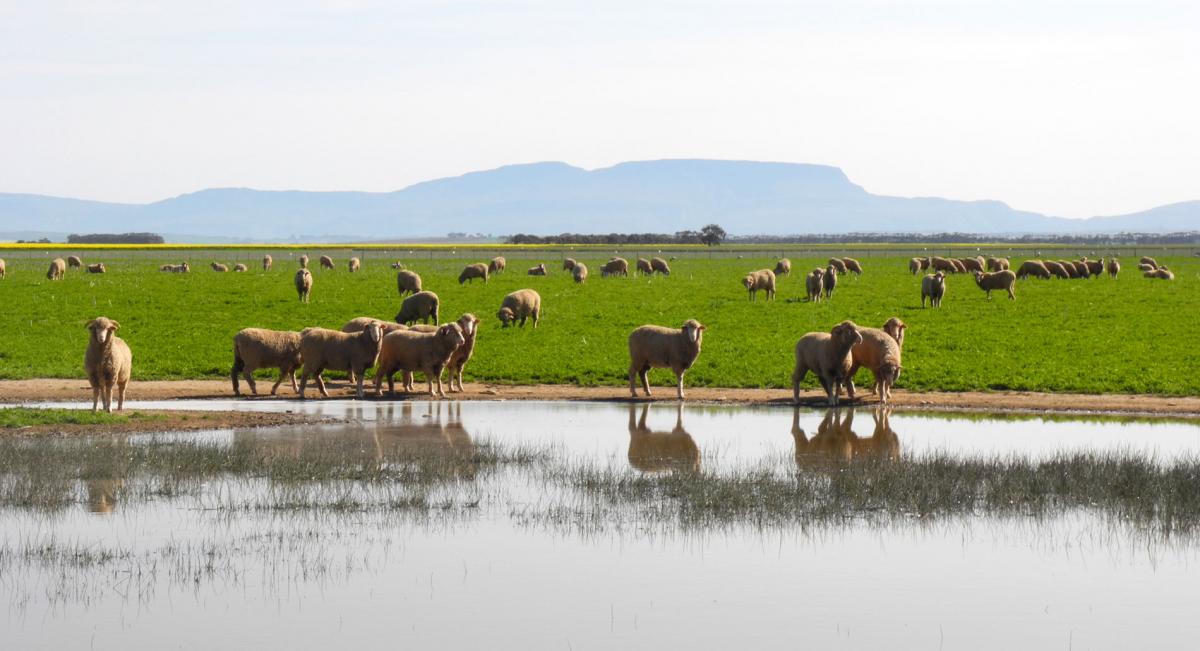Fishing for resilience in the southern Cape: the climate angle

Introduction to the Southern Cape Interdisciplinary Fisheries Research (SCIFR) project affiliated with the South African Research Chair in Marine Ecology and Fisheries
By Catherine Ward and Louise Gammage with contributions from Prof Astrid Jarre and Greg Duggan
In many coastal communities scattered along South Africa’s 3000 km coastline, fisheries are an important source of food and livelihoods. The southern Cape is no exception, where fishing activities undertaken include the traditional commercial handline fishery.

Above: Fish catch along the southern Cape coast (credit: Catherine Ward 2014)
What’s all the fuss about?
The past two decades have witnessed a suite of challenges in South Africa’s fisheries that stem from events occurring in both human and natural systems. Challenges include shifts in the distribution of various commercially-significant fish stocks, increases in intra-seasonal wind and temperature variability, the implementation of the 1998 Marine Living Resources Act (MLRA), the 2000 declaration of the linefish emergency, the subsequent 2003/4 restructuring of the commercial handline fishery and the 2013 Fishing Rights Allocation Process (FRAP) – to name a few. It has become increasingly important to understand how marine social-ecological systems interact, particularly as local challenges will be compounded by climate change in South Africa.
My kingdom for a Kob
The Southern Cape Interdisciplinary Fisheries Research (SCIFR) project predominately works in fishing communities located along the southern Cape coastline. Research questions for this group focus on mounting concerns over the well-being of natural resources and resource users, fish and fishers in particular, to explore new ways working with these concerns. The SCIFR project draws on broad disciplines whilst using common themes and methods in order explore resilience in the southern Cape (refer to the framework diagram). While the research centres on the marine social-ecological system in this area, an agricultural component of this coastal system is also incorporated in order to gain insight into the larger network interplay between terrestrial and marine systems. SCIFR is linked to the South African Research Chair in Marine Ecology and Fisheries based at the University of Cape Town.

Above: Framework for SCIFR project
The climate angle
Talking to 50 local fisher folk in the southern Cape has revealed different stressors that impact the fishing communities. In particular, change in the natural environment, more specifically observed weather and climate, was identified as a stressor by 90 percent of participants. The fishers regard it as the stressor that has the most direct impact on their ability to carry on with day-to-day fishing activities. “Die weer patroon het baie verander, dis die een ding wat ek kan agterkom” (Skipper, Melkhoutfontein: 2013).
An example of how SCIFR researchers are investigating changes in the area is a collaborative co-design project which has seen fishers and scientists drawn together around the co-design and development of a novel water sampler unit used to measure marine water temperatures over the fishing grounds. This has resulted in water temperature data with potential to complement existing data sets and brought fishers into conversations with science, spreading information and awareness around issues such as changes in both local and global sea temperatures.

Above: Southern Cape coastline (credit: Catherine Ward 2015)
To look at the ‘bigger picture’ of natural changes occurring in the southern Cape, another component of SCIFR looks at the larger interplay of terrestrial and marine systems. This is a two-fold approach – climate change and variability are assessed through analysing detailed climate/environmental data within the region and local knowledge on climate changes is collected from farming and fishing communities in the southern Cape. These two approaches are used in synergy to gain insight into the larger network interplay between terrestrial and marine social- ecological systems.

Above: Farm landscape in the southern Cape (credit: Catherine Ward 2015)
The SCIFR project officially started in 2013 and the first round of research in the southern Cape is set to be completed by 2017/8. This transdisciplinary research aims to inform various decision-making entities at different scales with the idea to enhance resilience in these coastal social-ecological systems. For more information, click here.
Disclaimer: The views expressed here are solely those of the author in her private capacity and do not in any way represent the views of the ACDI, or any other entity affiliated with the ACDI.